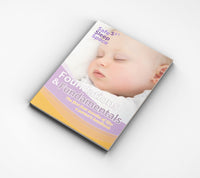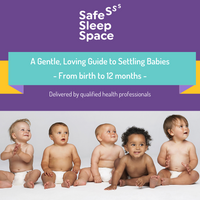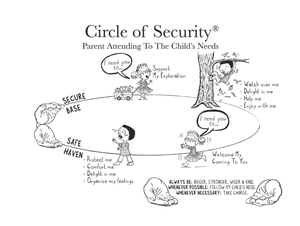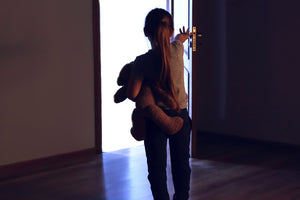What to consider when moving your baby and toddler in together

There comes a time when the baby in the family may be ready to join their sibling in a shared room. And although there is no one perfect age and stage for this, there are some signs when the transition can be easier. Read on to see what can make the move less challenging.
What’s the right age to move my baby and toddler in together?
Some parents who’ve had the experience of their children sharing a room say that the adjustment is easier when kids are younger. Others say it’s better to wait until they’re older and can be reasoned with. Do what is right for you and what suits your situation.
Why would I want my kids to share a room?
There are many reasons why parents can want their children to share a room. Generally, children aren’t the ones who say they want to move in together and it’s parents who see the benefits. Room sharing can be a purely practical decision, though for some parents, it is based more around emotional benefits.
Sharing a bedroom may be the only option when a family needs to downsize their house, or need to move and don’t have the choice for their kids to be in separate rooms.
In large families, having the younger children in together can make sense. Grouping similar ages can help with nappy changing, settling, play and general routines. It can also help with relationship building and supporting a closer connection.
Some of the more common reasons for room sharing are:
- Parents having happy memories of room sharing with their own siblings.
- Parents feel that shared experiences are beneficial for their children.
- Limited rooms and space in a home. Sometimes it’s simply not possible for every child to have their own room.
- A new baby is coming and needs to room share with the parents.
- One room may be better ventilated/cooler/warmer than others.
- One room is set up as a children’s bedroom.
What are the signs that it’s time to start room sharing?
From a safe sleeping recommendation, the safest place for babies to sleep is in their own safe cot in the same room as an adult care-giver for the first six to twelve months. Once your baby is old enough to move from your room, the practical solution may be for them to share with their toddler sibling.
Your baby becomes old enough to transition from a cot to a toddler bed and this shifts your view of them being a baby to a child. Once they are tall enough to place a leg over the top cot rail or show signs of being ready to climb out of their cot, this becomes a safety issue. Managing two beds in a room may be easier than a cot and a bed.
What can help the process?
Speak with your toddler about what’s going to happen. Some toddlers are very sensitive to change and need a lot of explanation and reassurance. Others are more flexible and just go with the flow. Similarly, some babies need a little more time to adjust.
Be confident about making room changes and your children will be more likely to your lead.
Set up a changing area in the shared room so everything your need for nappy changes is in the one place.
Reduce clutter in the shared room. If you have the choice, keep toys to a minimum and floor space clear. A bed/bed or bed/cot combination in a room can take up a lot of room.
Organise separate storage places for your toddler and your baby in the one room. This will help you to stay organised and keep clothing under control.
What to expect when your baby and toddler share a room
Try not to anticipate problems which may not eventuate, though it’s fair to give your children some time to adjust to their new shared sleeping environment.
- It’s unlikely your baby and toddler will have exactly the same sleep schedules. Your baby will need at least one more extra daytime sleep than your toddler.
- You may find your children ‘wind each other up’ when they first start room sharing until they used to it.
- At night, you may find it easier to follow a settling routine with both children going to bed at the same time. This will depend on their age differences.
- There will be times when one child needs more time with you than the other. Sickness, teething and developmental stages can all be reasons for needing more reassurance and soothing. Try to balance your attention evenly so there’s less chance of sibling rivalry and jealousy.
When is room sharing not recommended?
Sometimes sharing a room is not a good idea:
- If your toddler is still too little to understand they cannot climb into the cot with their sibling.
- If your toddler needs constant supervision around the baby and you don’t feel they’re safe to leave alone without supervision.
- If your baby’s crying is continuing to disturb their sibling.
5 top tips to help with room sharing
- Try to allow some time with each child when going through pre-settling routines. Give each some special, one-on-one time with you as well as sharing activities such as reading.
- If you need to settle the baby before the toddler, ask your partner to care for the older child. Explain to your toddler that you are just settling the baby and then it will be their time with you.
- Tell your toddler that the baby may wake up through the night and you will come to them. Let your toddler know the baby will be okay.
- Try to be flexible and synchronize day time sleeps for both children. That way you’ll get a break when they’re both sleeping.
- When settling, focus on the most tired child first. One may settle more easily than the other so focus the child who goes to sleep more quickly and then concentrate on the more resistant one.
Baby Sleep Cycles

To understand more about how much sleep your infant or toddler needs, download our sleep charts.
Each table contains easy to view, practical and evidence based sleep recommendations.
Did you know you can book a call with our sleep consultants right now?
 Our experienced, professional sleep consultants speak with parents to help answer questions and concerns you have about helping newborns to 3-year-olds get more sleep.
Our experienced, professional sleep consultants speak with parents to help answer questions and concerns you have about helping newborns to 3-year-olds get more sleep.
No video required, no having someone over to the house or having to get yourself ready.
Book a time that best suits you.
Nurture Calls

When you have a newborn, it can really help to have someone to call for guidance, support, confidence and advice. Our Nurture Calls are 20 minute calls, designed specifically to support parents with newborns.
The first 10 weeks can be hard. Our team is here to listen, help and guide you with the issues relevant to you and your baby.
Written for Safe Sleep Space by Jane Barry, Midwife and Child Health Nurse
References
Reading and storytelling with children | Raising Children Network
RN3356_Cot_Bed_DL_Oct2018_web.pdf (rednose.org.au)
Room sharing with baby | Red Nose Australia
Sharing a bedroom: babies & older kids | Raising Children Network








